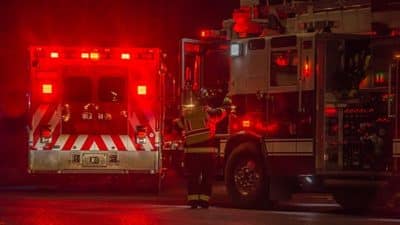
Chuck Shorter of Montgomery County has lost sheep, cattle and goats to coyotes. Shorter, who has raised sheep since 1964, said coyotes first appeared on his farm in the 1980s. He lost 50 lambs.
“The specialists with the coyote damage program came out and helped me with my problem,” he said, by setting traps and providing technical assistance. “I’ve lost nowhere near that number since, but I also got out of the sheep business due to the coyotes.”
Shorter now raises goats. “Sheep stay in during the day and go out at night. That’s when the coyotes would be out grazing on them,” he explained. “Goats go out during the day and stay in at night, which helps, and our guard dogs keep an eye on them. But we do still lose a few each year to coyotes.”
Shorter called the Coyote Damage Control Program “very, very necessary.
“In Virginia we have a lot of coyotes, a lot of livestock and a lot of problems. I don’t know how (U.S. Department of Agriculture) Wildlife Services gets done what they do with such limited funding. The coyote problem has been around for a long time, and it’s not going to stop. So we need help with it.”
USDA Wildlife Services, which runs the program, provided direct control services to 195 livestock farms in 53 Virginia counties in fiscal year 2014. During that time, 285 sheep, 81 calves, and 32 goats were verified killed by coyotes on those farms. That represents a 39 percent increase in reported sheep predation and a 69 percent increase in reported calf predation from fiscal year 2013.
“Virginia is rare; there are few eastern states that have livestock protection programs like this with livestock professionals that can come out and help farmers with these types of issues,” said Scott Barras, state director for USDA Wildlife Services. “This is a real benefit for farmers. It’s bad enough to lose livestock to predation, especially now when livestock prices are what they are and farmers are really feeling the impact.”
The demand for livestock protection services is expected to increase due to the development of statewide program availability and observed increases in coyote population and predation. During fiscal year 2014, farms in 26 additional counties requested assistance, with 76 new farms requesting assistance.










